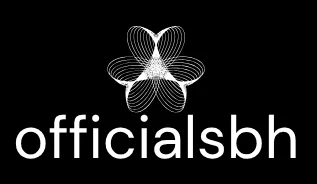Innovation isn’t just a buzzword; it’s the lifeblood of progress. In a world where yesterday’s breakthroughs become today’s old news, keeping up with the latest trends is like trying to catch a greased pig at a county fair—exciting but slippery. From artificial intelligence to sustainable tech, the landscape is evolving faster than a cat meme goes viral.
As businesses scramble to stay ahead, understanding these innovation trends becomes crucial. It’s not just about being trendy; it’s about survival in an ever-changing market. So, grab your thinking cap and a cup of coffee—let’s dive into the wild world of innovation trends that are shaping the future and making the competition sweat. After all, who wouldn’t want to be the cool kid on the block with the next big idea?
Table of Contents
ToggleOverview of Innovation Trends
Innovation trends drive progress in various sectors, including technology, business, and sustainability. These trends shape how organizations deliver products and services and significantly influence consumer behavior. Current trends center around artificial intelligence, machine learning, and automation, which streamline processes and enhance decision-making.
Sustainable technology stands out as a crucial area. Firms prioritize eco-friendly solutions to address climate change and meet consumer demand for responsible practices. This trend includes renewable energy sources, like solar and wind power, alongside sustainable manufacturing techniques.
Digital transformation significantly impacts how companies operate. Businesses adapt by integrating cloud computing and big data, which foster agility and data-driven strategies. Remote work tools also gain popularity, enabling teams to collaborate efficiently from diverse locations.
Moreover, personalized experiences are on the rise, with companies leveraging data analytics to understand consumer preferences. This focus on customization improves customer satisfaction and loyalty. As innovation continues to evolve, businesses that embrace these trends possess a competitive advantage in their respective markets.
Emerging technologies such as blockchain and the Internet of Things are also noteworthy. Blockchain enhances security and transparency in transactions, while IoT fosters connectivity between devices. These technologies reshape various industries, from finance to healthcare, presenting new opportunities for growth.
Staying informed about innovation trends remains vital for businesses. Understanding these developments enables companies to adapt and thrive in an ever-changing landscape. Organizations that proactively pursue innovation trends are more likely to achieve long-term success.
Emerging Technologies

Emerging technologies are transforming industries and enhancing operational efficiency. Staying updated on these advancements is crucial for maintaining competitiveness.
Artificial Intelligence and Machine Learning
Artificial intelligence and machine learning rapidly evolve, revolutionizing decision-making across sectors. Companies adopt these technologies to automate mundane tasks and analyze vast data sets. Enhanced predictive analytics allow for personalized customer interactions, strengthening consumer loyalty. Many firms report increased productivity as these tools streamline processes and reduce human error. Organizations must prioritize implementing AI-driven solutions to harness the benefits these technologies present.
Internet of Things (IoT)
The Internet of Things connects devices and systems, enabling businesses to leverage real-time data. IoT technology facilitates improved monitoring of assets and proactive maintenance, minimizing downtime. Numerous industries, including manufacturing and healthcare, benefit from enhanced operational insights. Device interconnectivity fosters data sharing between systems, driving smarter decision-making. By integrating IoT solutions, companies respond promptly to market demands and consumer behaviors. This adaptability places organizations ahead in innovation and efficiency.
Sustainability in Innovation
Sustainability serves as a cornerstone for innovative strategies in today’s business landscape. Companies actively seek eco-friendly solutions to address climate change and respond to consumer demands.
Green Technologies
Green technologies represent a broad range of innovations aimed at reducing environmental impact. Solar energy systems, wind turbines, and energy-efficient appliances enhance resource management. Many firms invest in reducing carbon footprints by utilizing renewable energy sources. Monitoring systems help organizations track emissions and energy usage, enabling better decisions. Adoption of electric vehicles adds to this trend, as businesses aim for cleaner transportation options.
Circular Economy
The circular economy focuses on minimizing waste and promoting the continual use of resources. This model encourages companies to design products for longevity and recyclability. Firms transition from linear production methods to regenerative processes that reclaim materials. Implementing strategies such as product take-back programs fosters sustainable practices. Collaboration across supply chains increases resource efficiency while reducing environmental impact. Embracing this economy not only fuels innovation but also aligns with consumer expectations for sustainable products.
Innovation in Business Models
Businesses innovate their models to adapt to market demands and technological advancements. Modern strategies focus on enhancing customer value and operational efficiency.
Subscription Services
Subscription services have gained traction across various industries, including entertainment and retail. This model offers predictable revenue streams while providing customers with ongoing access to products or services. Companies implement tiered plans, allowing for tailored experiences that meet diverse consumer needs. Examples include streaming platforms like Netflix and subscription boxes like Stitch Fix. These innovations encourage brand loyalty as users engage with offerings consistently, creating a stable customer base.
Remote Work Solutions
Remote work solutions are changing how businesses function, emphasizing flexibility and collaboration. Tools like Zoom and Slack enable communication and teamwork across distances. Organizations adopt cloud-based software to facilitate project management and document sharing, enhancing productivity. Solutions also include virtual reality platforms for immersive meetings. With 74% of companies planning to support remote work, investing in these technologies becomes essential for attracting talent and improving employee satisfaction.
Impact of Innovation Trends on Society
Innovation trends fundamentally reshape societal structures and everyday experiences. Artificial intelligence significantly influences job markets, creating new roles while rendering some obsolete. Businesses embracing AI and automation enhance productivity, streamlining operations and improving efficiency.
Sustainable technology addresses urgent environmental concerns. Companies adopting eco-friendly practices resonate with consumers who favor green solutions. Solar energy systems and energy-efficient appliances exemplify how innovation meets sustainability, driving a cultural shift towards responsibility.
Digital transformation alters communication and collaboration within organizations. Remote work tools like Zoom and Slack enable flexible work arrangements, improving work-life balance and employee satisfaction. Greater access to information fosters a culture of knowledge-sharing among teams, enhancing overall performance.
Consumer expectations also evolve in response to innovation. Personalization through data analytics enables businesses to understand preferences and tailor offerings. This results in increased customer loyalty and satisfaction, which are crucial for maintaining competitive advantage.
Emerging technologies like blockchain and the Internet of Things facilitate new business models. Industries can leverage real-time data for proactive maintenance and operational efficiency. Supply chains benefit from enhanced transparency, fostering trust and accountability among stakeholders.
Economic implications emerge as businesses innovate. Subscription models create predictable revenue streams while promoting ongoing consumer engagement. This shift challenges traditional sales approaches, pushing companies to rethink value delivery.
Society reflects these trends in various ways. Communities increasingly prioritize sustainability, driving demand for green technologies. Education adapts to prepare individuals for the workforce changes stemming from innovation, ensuring future generations are equipped for evolving roles.
Overall, the impact of innovation trends extends beyond businesses, fundamentally altering societal dynamics and expectations. Embracing these changes helps shape a more sustainable and efficient future.
Staying ahead of innovation trends is vital for businesses aiming to thrive in today’s fast-paced environment. As technology evolves and consumer expectations shift, organizations must adapt to remain competitive. Embracing advancements like artificial intelligence and sustainable practices not only enhances operational efficiency but also fosters customer loyalty.
The focus on digital transformation and personalized experiences will continue to shape business strategies. Companies that prioritize these trends are better positioned to meet market demands and drive meaningful change. Ultimately, the proactive adoption of innovative solutions will pave the way for a more sustainable and successful future.



